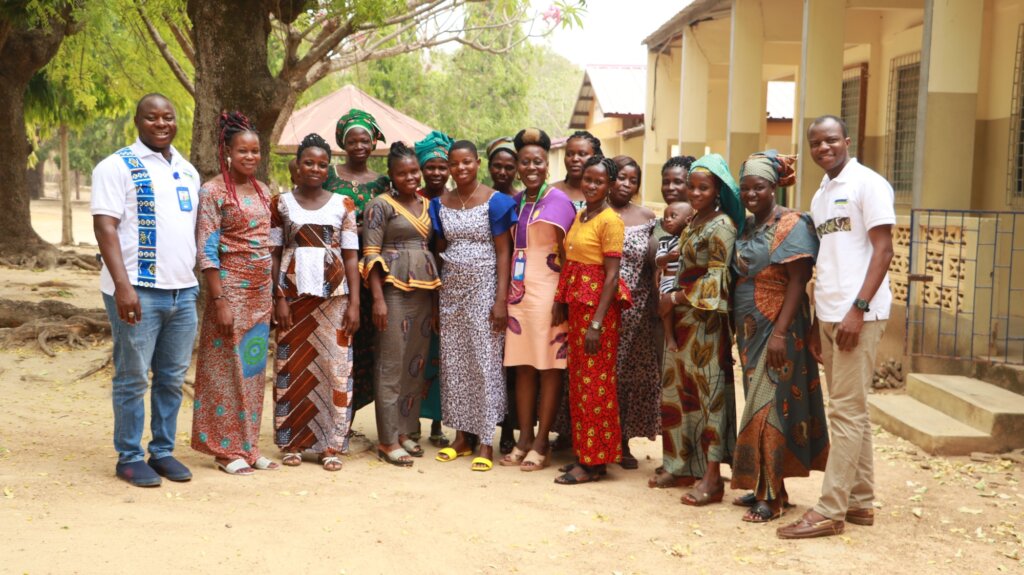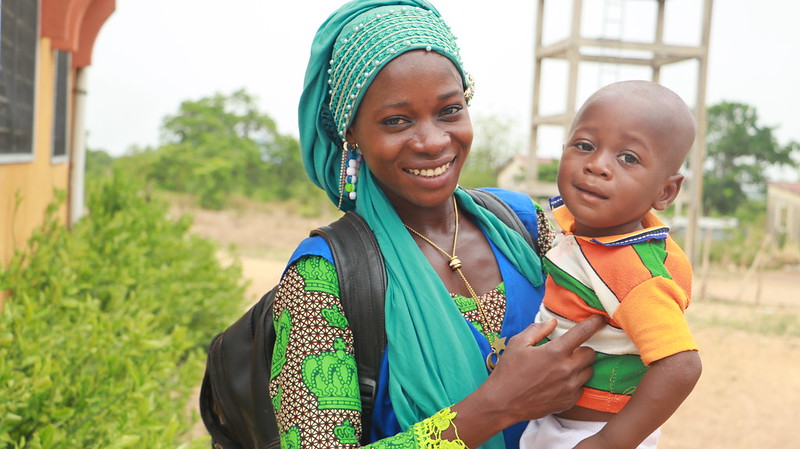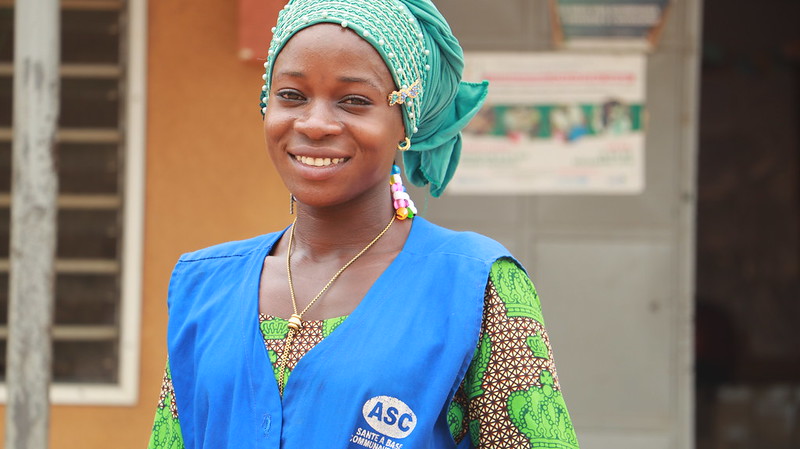Djariyétou Aboubakare, a Community Health Worker (CHW) from the rural village of Koundoum in Togo, has spent the last six years tirelessly serving her community. Her dedication is evident in her daily work, where she not only provides essential care but also educates and convinces community members to adopt life-saving health practices. Djariyétou’s role involves going door-to-door, speaking with families about the importance of giving birth at healthcare facilities, adopting family planning methods, and ensuring that children receive necessary vaccinations. Her ability to connect with and influence her community is critical, especially in a setting where resistance to new health practices can be strong.
Building on this foundation of trust and influence, Djariyétou was recently selected as one of thirteen CHWs to participate in Integrate Health’s CHW Ambassador Program, a groundbreaking initiative designed to elevate CHWs into advocacy and leadership roles. This program empowers participants, particularly women, to represent their communities’ health needs on larger platforms, fostering both personal and professional growth.
The CHW Ambassador Program: Training to Lead
Integrate Health’s CHW Ambassador Program is designed to empower CHWs like Djariyétou with the leadership skills and advocacy tools necessary to become influential voices in their communities and beyond. Over the course of two months, participants receive comprehensive training that is structured around three core pillars: advocacy, communication, and leadership.

A significant component of the program focuses on equipping CHWs with the skills to advocate effectively for their communities. This includes training on how to influence public health policy and represent community needs to local, national, and international stakeholders. The Ambassadors also completed the CHIC advocacy course, further enhancing their ability to navigate and impact the policy landscape. Djariyétou shared, “I discovered a lot of new things, particularly public speaking techniques and how to make a good appeal. It’s going to help me in my daily life from now on.”
Effective communication is critical for CHWs who often serve as the bridge between their communities and the broader health system. The program offers training in public speaking, media relations, and engaging with various audiences, including local communities, policymakers, and international stakeholders. Djariyétou found the media training especially valuable, noting, “How to behave in front of the media was entirely new to me, and I really liked learning these techniques.”
Building leadership capacity is another key focus of the program. CHWs are trained to take on leadership roles within their communities, with a strong emphasis on gender equality and social equity. This training fosters self-empowerment and confidence, ensuring that CHWs are prepared to address the unique challenges faced by women in accessing healthcare. To prepare for potential international advocacy roles, English language training is also provided, creating the building blocks for CHWs to engage with global health audiences.
Finally, the program addresses broader social determinants of health, including environmental and climate issues, ensuring that CHWs are prepared to respond to the multifaceted challenges affecting their communities.
Becoming an Integrate Health CHW Ambassador
With the comprehensive training she received, Djariyétou and her fellow Ambassadors are now well-prepared to apply their new skills in various settings. In her role as a CHW Ambassador, Djariyétou will advocate for professional Community Health Workers and work to ensure better recognition and support for their work. This includes leading community meetings, organizing health education sessions, and collaborating with local leaders to improve healthcare delivery. Djariyétou has already participated in an Integrate Health board meeting, where she contributed her insights on the challenges and needs of Community Health Workers, demonstrating the immediate impact of her new role.
As part of their ongoing development, Ambassadors are now registered with the CHIC Speaker Bureau, which will provide them with opportunities to speak at the global level. This platform will allow Djariyétou to represent Integrate Health and the broader CHW community on international stages, sharing her experiences and advocating for policies that support CHWs and the communities they serve.

“I hope to promote the work of CHWs at district, regional, and international levels with the support of Integrate Health. I want to represent Integrate Health everywhere and advocate to donors to continue our work and provide care to more patients and communities. I hope to be able to travel to tell my story, share my experience with others, and call on decision-makers to fund community health systems,” says Djariyétou.
Looking ahead
Djariyétou Aboubakare’s participation in the CHW Ambassador Program marks a significant step forward in her journey as a CHW. Through this program, Integrate Health is not only enhancing the capabilities of CHWs but also promoting gender equity and empowering women to take on leadership roles in health advocacy. Djariyétou’s story is a powerful example of how frontline workers, when given the right tools and training, can drive meaningful change in their communities and beyond. As she continues her work, Djariyétou is poised to be a strong voice for her community, advocating for better healthcare access and equity, and inspiring others to join her in this vital mission.
Djariyétou says, “This is the beginning of an important journey for me. As a woman and mother from a poor community, I feel I have a duty to support the cause of community health. I am proud and honored to work with Integrate Health in this new role to help mobilize resources, raise awareness, and empower women and children in rural communities.”

